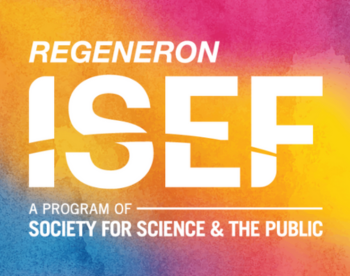35 Historical Research Topics for High School Students
[elementor-template id="1670"]
The value of historical research lies in its ability to provide us with a deeper understanding of history, thereby offering profound insights and guidance for the future. By conducting a detailed study of historical events and figures, we can uncover the developmental trajectory of human society and perceive the underlying mechanisms and trends in historical evolution. This profound understanding of the past is crucial for us to address complex challenges and issues in our current lives.
As a discipline with a long history and rich legacy, historical studies not only fulfill the mission of exploring and interpreting the past but also occupy a key position in modern society. For high school students, historical research is not only an academic exploration but also a journey that enhances critical thinking and personal development.
How can high school students participate in Historical Research?
For high school students, embarking on historical research can be an exciting yet challenging process. Here are some key steps and suggestions to help students get started and delve into research:
1. Choosing a Research Topic
Select a topic that aligns with personal interests and has research value. High school students can base their choice on their interests, combined with the historical knowledge they have gained and course requirements, determining a topic that is valuable and feasible for research. For instance, they might focus on social change, cultural development, or political events in a specific historical period, or investigate the life stories and impacts of a historical figure.
2. Gathering Historical Data
Utilize various resources like libraries, archives, and online databases. Collecting historical data is a crucial phase in research. Students can access relevant materials through various channels, such as libraries, archives, and museums. Additionally, the internet offers a wealth of historical resources, including academic papers, historical texts, and visual materials. While gathering data, students should pay attention to the reliability and authenticity of sources, aiming to choose authoritative and objective materials.
3. Data Analysis
Organize and analyze data to reveal patterns and connections. Once historical data is collected, students need to organize and analyze it. This involves categorizing, aggregating, and summarizing the data, extracting key information, and revealing the inherent connections and developmental patterns of historical events. During data analysis, students should apply their historical knowledge and analytical methods, such as chronological order, causality, and comparative analysis, to conduct an in-depth examination of the materials.
4. Writing a Research Report
Compile research into a clear, coherent written report. Writing a research report is the final stage of historical research. Students must compile their research process and results into a written report, including sections such as research background, objectives, methods, results, and conclusions. When writing the report, students should ensure logical coherence and clarity, presenting content that is clear, precise, and comprehensive. Furthermore, they should adhere to academic writing standards and formats.
5. Recommended Authoritative Platforms and Resources
Make use of authoritative databases and forums for guidance and additional data. While conducting historical research, students can leverage authoritative platforms and resources for data acquisition and reference. For example, scholarly databases like JSTOR and Project MUSE offer extensive historical academic papers and books; national archives and museums provide rich historical documents and artifacts. Additionally, specialized history research websites and forums, such as History Net and Reddit’s history discussion section, can serve as valuable platforms for student exchange and learning.
In this edition, Embark History Mentors have carefully curated 35 exploration ideas within the field of history for high school students to ponder and research. These topics cover a wide range of historical aspects and aim to spark students’ enthusiasm for history while providing abundant inspiration for their research endeavors.
Ancient Civilization Research
1.Religion and Social Structure in Ancient Egypt
Explore how religious beliefs in Ancient Egypt profoundly shaped its social hierarchy, power distribution, and daily life. Analyze the relationship between religious rituals and social order, and unveil the influence of religion on social stability and political power.
2.Democracy in Ancient Athens, Greece
Examine the operational mechanisms of democratic politics in ancient Athens. Discuss the roles of the citizens' assembly, the council, and the courts, as well as their impact on democratic decision-making, to understand the practice and limitations of democracy in ancient city-states.
3.Legal System of Ancient Rome
Study the articles of the Twelve Tables of Roman Law and their implementation. Explore how Roman law ensured citizen rights and social justice through legal procedures, and analyze the influence of Roman law on subsequent Western legal systems.
Medieval History Exploration
4.Development of the Feudal System in England
Analyze the establishment process, characteristics, and far-reaching impact of the feudal system on the socio-economic structure of England. Examine the relationship between feudal contracts and land ownership, and discuss the influence of feudalism on Britain's social and political development.
5.Crusades and Jerusalem
Investigate the motivations, process, and significant impacts of the Crusades on the Middle Eastern political landscape and religious relations. Examine their influence on European military technology and cultural exchange, and reveal the role of the Crusades in societal transformations in medieval Europe.
6.Religious Reformation in Late Medieval Europe
Study the Reformation movement led by Martin Luther, analyzing how his theological ideas challenged Catholic doctrines and exploring its reshaping influence on European political and social structures, and understand its role in advancing Europe's modernization process.
Modern Revolutions and Changes
7.Textile Industry in the British Industrial Revolution
Investigate the key role of the textile industry in the British Industrial Revolution. Analyze how technological innovations drove productivity and changes in the socio-economic structure, and explore the impact of the Industrial Revolution on social classes, labor conditions, and lifestyles.
8.Colonies’ Unity in the American Revolutionary War
Study how the thirteen American colonies united closely to resist British rule. Discuss the strategic decisions of the Continental Congress and their contribution to the victory in the War of Independence, and understand the war's impact on American nation-building and the development of the democratic system.
9.The Jacobins in the French Revolution
Examine the central role of the Jacobins in the French Revolution and the influence of their policies on the political trajectory of France and the world. Analyze the social and economic background of their Reign of Terror, and discuss the Jacobins' role and historical evaluation in the French Revolution.
World War and Peace
10.The Outbreak and Impact of World War I
Study the causes, major battles, and global political impact of World War I. Analyze the war's deep influence on socio-economic conditions, culture, and international relations, and explore its role in shaping the modern international system.
11.Strategy and Consequences of World War II
Study the major strategic decisions of World War II and their impact on the post-war world. Investigate the war's reshaping effect on global political, economic, and social structures, and understand World War II's profound impact on modern international relations.
12.International Relations and Patterns During the Cold War
Examine the international relations, major events, and global political impact of the Cold War period. Analyze the Cold War's influence on political, military, and social development worldwide, and explore its lasting impact on the modern international system.
Social Movements and Progress
13.Historical Background and Impact of the American Civil Rights Movement
Study the background, major events, and the role of the American Civil Rights Movement in promoting social justice. Analyze its profound impact on the U.S. social structure, legal system, and racial relations, and understand its place in American history.
14.Development and Challenges of the Feminist Movement
Examine the development, main demands, and challenges faced by the feminist movement. Explore its profound impact on gender roles, equality of rights, and social policy, and understand its influence worldwide.
15.Rise and Impact of the Environmental Movement
Study the rise, major activities, and deep social influences of the environmental movement. Analyze its impact on modern environmental protection policies, sustainable development, and social values, and explore its role globally.
Cultural and Artistic Exchange
16.Artistic Achievements and Ideological Changes During the Renaissance
Study the artistic achievements of the Renaissance and their transformative impact on social thought. Analyze the Renaissance's profound influence on European culture, art, and scientific development, and understand its place in European history.
17.Influence of the Enlightenment on European Society
Study the main ideas of the Enlightenment and their influence on European society, politics, and culture. Explore the Enlightenment's role in promoting modern democratic institutions, human rights concepts, and scientific methods, and understand its function in European modernization.
18.History and Present of East-West Cultural Exchange
Study key historical points and major events of East-West cultural exchange and their impact on modern cultural diversity. Analyze the influence of cultural exchange on social structures, value systems, and lifestyles, and discuss its role in the globalization process.
[elementor-template id="1677"]
Economic Development and Change
19.Impact of the Silk Road on the Ancient World Economy
Study how the Silk Road facilitated economic prosperity and cultural exchange in the ancient world. Analyze its impact on the economic landscape, trade relations, and cultural interactions of the ancient world, and understand its place in global economic history.
20.Global Economic Pattern Changes After the Industrial Revolution
Study how the Industrial Revolution reshaped global economic patterns and international trade relations. Explore its impact on social classes, labor conditions, and lifestyle, and understand its role in global economic history.
21.Challenges and Opportunities in the Modern Globalization Process
Study the main challenges and opportunities in the modern globalization process. Analyze its impact on the economies, societies, and cultures of different countries, and explore globalization's role in the modern international system and global governance.
Technological Revolution and Future Prospects
22.The Role of Technological Revolution in Advancing Society
Explore how technological revolutions drive societal progress and economic growth. Analyze their impact on social structures, lifestyles, and cultural perceptions, and understand the role of technological revolutions in modern society.
23.History and Future Prospects of Artificial Intelligence Technology
Study the developmental history and current state of artificial intelligence technology, and its potential impact on future society. Examine AI applications across various fields and their effects on social structures, employment, and ethical considerations.
24.Historical Evolution and Practical Exploration of Sustainable Development
Investigate the historical evolution of the concept of sustainable development and its global applications. Analyze its influence on modern environmental protection, resource management, and social policies, and explore its future role in society.
Political Systems and National Governance
25.Comparison and Analysis of Different Political Systems
Examine the features, advantages, and disadvantages of various political systems and their effects on national governance. Analyze the implementation and historical evaluation of democracy, monarchy, and other systems, and understand their roles in governance.
26.Historical Evolution and Innovative Practices in National Governance Systems
Study the historical evolution and main characteristics of governance systems and their impact on social and economic structures. Explore innovative practices and their role in modern national governance.
27.Construction and Development Trends of Global Governance Systems
Examine the construction process, main institutions, and impact of the global governance system on international relations. Analyze the development trends of global governance and its role in the modern international system.
Nationalism and International Relations
28.Manifestations and Impact of Nationalism in Different Historical Periods
Study how nationalism has manifested throughout history and its impact on international relations. Analyze nationalism's influence on social structures, national policies, and international conflicts, and understand its role in global politics.
29.Case Studies of Conflict and Cooperation in International Relations
Explore typical cases of conflict and cooperation in international relations and their effects on global stability. Discuss the roles of power balance, interest negotiation, and international cooperation in understanding international relations and global governance.
30.Characteristics and Development Trends of Contemporary International Political Landscape
Research the main characteristics of the current international political landscape and its future development trends. Analyze its impact on the political, economic, and social development of various countries and its role in global governance.
Educational Reform and Social Progress
31.Historical Background and Motivations for Educational Reform
Investigate the historical context and major motivations for educational reform and its role in driving social progress. Analyze how educational reform affects social structures, cultural perceptions, and economic development.
32.The Impact of Education on Social Mobility
Examine how education promotes social class mobility and its profound impact on individual destinies and social structures. Explore the role of educational policy in ensuring social equity and equal opportunities.
33.Challenges and Opportunities in Contemporary Educational Reform
Study the main challenges and opportunities of modern educational reform. Analyze the role of educational innovation in responding to globalization and technological advancement.
Public Health and Social Welfare
34.Implementation of the UK's Public Health Act
Examine the background, implementation process, and outcomes of the UK's Public Health Act. Analyze its significance in improving public health and enhancing citizens' lives, and explore the relationship between government policy and social health.
35.Impact of the COVID-19 Pandemic on Global Public Health Policies
Explore the significant effects of the COVID-19 pandemic on global public health policies. Discuss the effectiveness of various countries' response strategies and their impacts on social and economic sectors, as well as the challenges and opportunities in international cooperation.
You can view more history research topics for high school students here.
Embark Exploration Program
Since its inception in 2016, Embark has focused on designing tailored scientific research training programs for teenagers, aiming to ignite their research potential. Our core team members are graduates from top American universities, possessing deep academic backgrounds and rich educational experience.
Embark brings together over 3,000 outstanding mentors from world-renowned institutions such as the Ivy League, MIT, Caltech, Johns Hopkins University, and Carnegie Mellon University to provide premier research guidance for students.
We offer personalized one-on-one research mentorship, crafting unique research topics based on each student's interests and strengths. Embark not only helps students systematically enhance research skills and build solid research frameworks but also closely integrates research with real-world applications, ensuring students comprehend the value of research. These experiences significantly enhance students' competitive edge in university applications.
For more details, please visit the Embark Exploration Program. If you have any questions or need further information, feel free to contact us. We are more than happy to assist and explore collaboration opportunities.
[elementor-template id="1682"]



